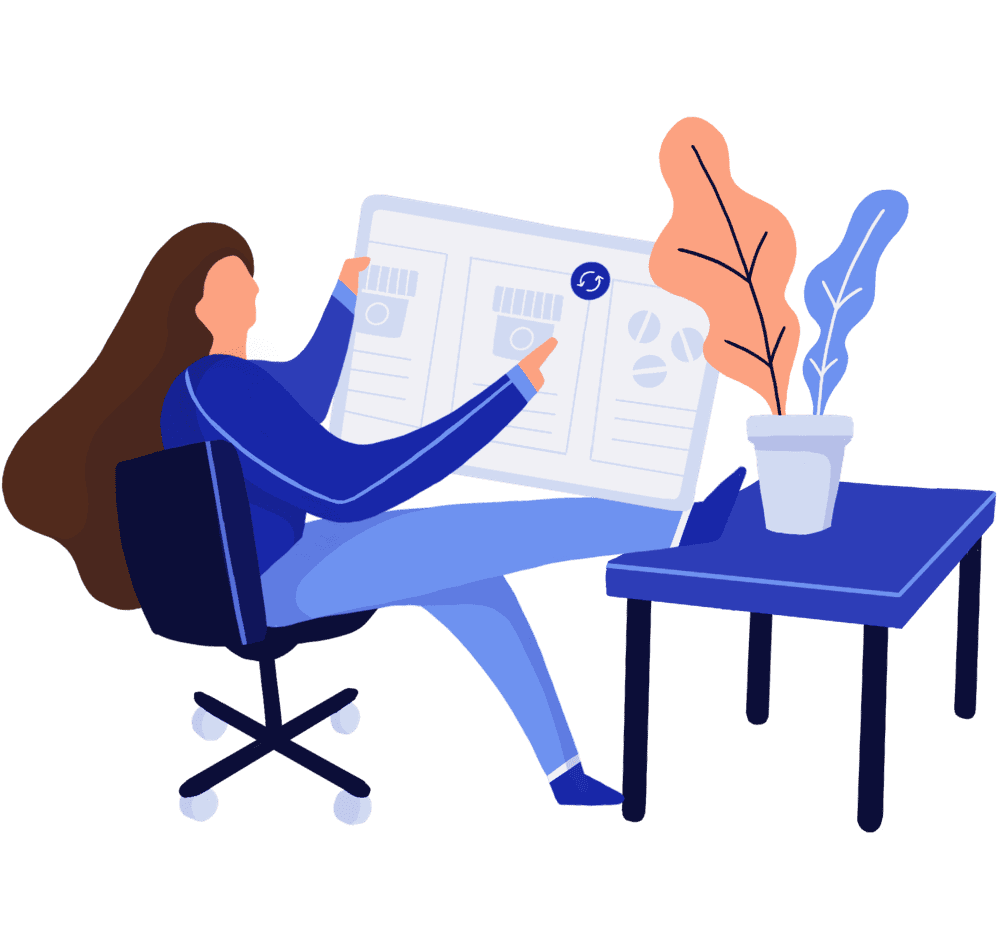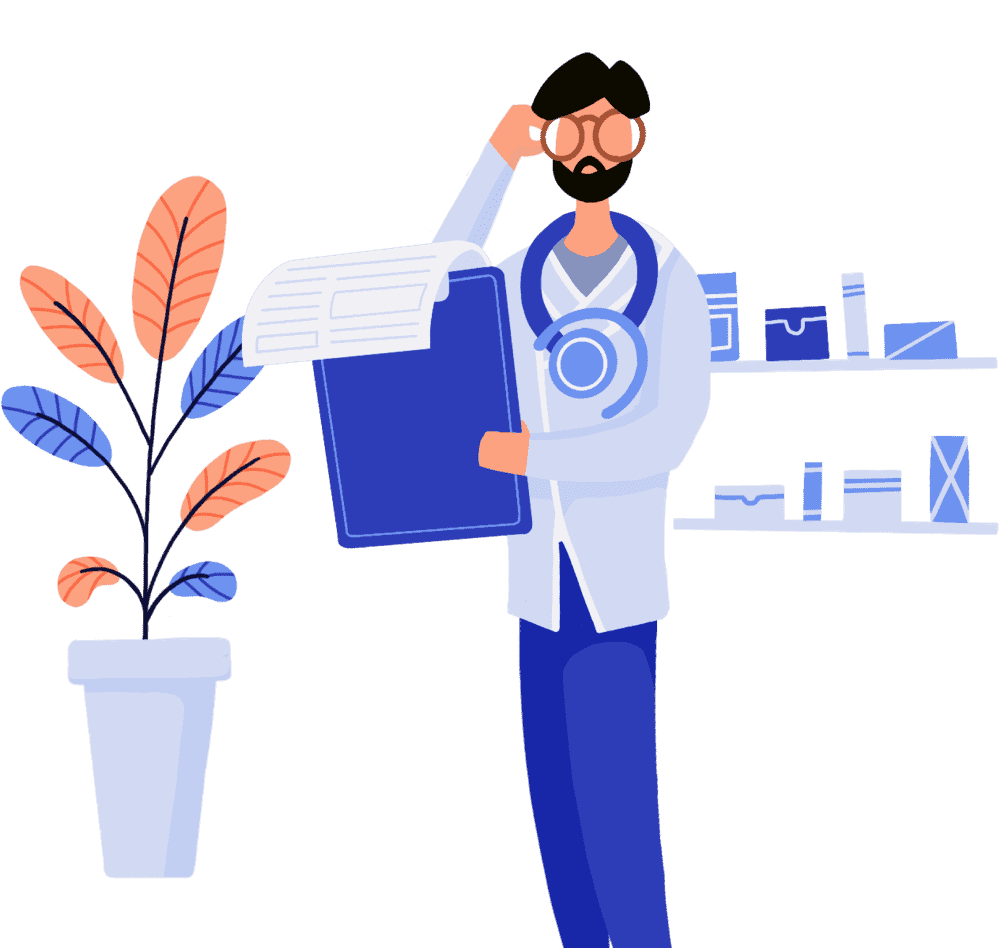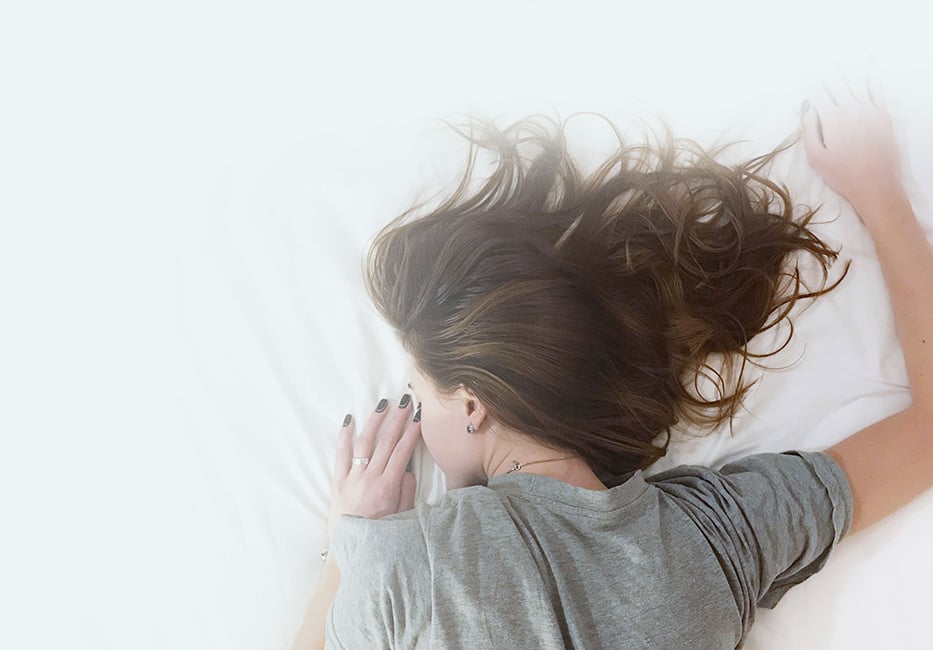Recharge your cells from within and enjoy 20% OFF NAD+ for a limited time only - shop now
- Home
- General Health
- Insomnia (Sleeping Tablets)
Insomnia (Sleeping Tablets)
Insomnia is the name for experiencing trouble sleeping and affects many people at some point in their lives. It can be temporary and caused by life events (like stress over an upcoming work commitment) or can persist for weeks or months. There are a number of causes but not getting good quality sleep can affect a person’s wellbeing massively.
Treat insomnia with our range of medications to help you fall asleep faster and to reduce the chances of you waking up in the middle of the night.
More Information
Insomnia - Key Information
What is Insomnia?
Insomnia is when you can't fall asleep or stay asleep long enough to feel refreshed the next morning. It's a common problem affecting about one in three people in the UK (NHS Inform, 2024), especially the elderly.
How much sleep do I need?
There's no exact amount of sleep everyone needs, as it varies from person to person. Generally, adults should aim for 7 to 9 hours of sleep each night. Children and babies usually need more sleep, while older adults often need less (NHS Better Health Every Mind Matters, 2024).
What are the benefits of a good night's sleep?
A good night’s sleep can greatly improve your overall health including:
- Better Concentration: Good sleep helps you focus better, react quicker, and make better decisions. Without enough sleep, your brain doesn't work as well.
- Healthy Weight: When you sleep well, you're less likely to overeat or choose unhealthy foods. Lack of sleep can make you hungrier and less motivated to exercise.
- Reduces Stress: Sleep helps reduce stress levels. If you don't sleep well, you're more likely to feel stressed.
- Stronger Immunity: Your body repairs itself while you sleep, helping you fight off illnesses like colds and recover faster if you do get sick.
- Healthy Heart: Good sleep lowers your risk of high blood pressure, heart disease, diabetes, and stroke. This is because your heart rate and blood pressure drop during sleep, reducing stress on your heart.
- Improves Memory and Learning: While you sleep, your brain organises information and experiences from the day, helping you remember and learn better.
- Better Mood: Good sleep helps you feel happier and less anxious. Poor sleep can make you feel grumpy and stressed.
Symptoms of Insomnia
According to the NHS, If you have insomnia, you might experience:
- Long periods of lying awake at night
- Difficulty concentrating
- Trouble falling asleep
- Feeling tired or irritable
- Restless sleep with frequent wake-ups
- Not feeling refreshed in the morning
Tips for tackling Insomnia
Struggling to fall asleep night after night can affect both your physical and mental health (Mind, 2020). Whether it's caused by stress, anxiety, menopause, or an uncomfortable sleeping environment, insomnia should be taken seriously and treated properly. Here are some tips to help:
- Avoid caffeine in the evenings (WebMD, 2023).
- Go to bed and wake up at the same time every day (Mayo Clinic, 2024).
- Make sure your bedroom is dark and quiet (Patient.info, 2024).
- Consider using drowsy antihistamines, such as diphenhydramine, the active ingredient in Nytol tablets, for short-term relief (NHS, 2021).
We understand how disruptive and upsetting insomnia can be, and these steps can help you get the rest you need.
Video: Simple Tips for Better Sleep from NHS Every Mind Matters
In the video below by NHS Better Health's Every Mind Matters campaign, Professor Colin Espie, Professor of Sleep Medicine at University of Oxford, provides some simple tips that you can follow to help you get a better quality of sleep naturally:
Can I prevent insomnia?
Yes, you can often improve insomnia by making simple lifestyle changes. These changes focus on your daytime and bedtime habits, as well as your sleep environment. Here are some tips to help you sleep better:
- Adjust your daily routine
- Create a relaxing bedtime routine
- Make your bedroom comfortable and conducive to sleep
How can I improve my sleep hygiene?
We've summarised some simple lifestyle changes that can help to prevent insomnia below for you:
| Category | Tips |
|---|---|
| Daytime Habits |
|
| Bedtime Habits |
|
| Your Bedroom Environment |
|
These small adjustments can significantly improve the quality and duration of your sleep.
What can cause Insomnia?
Sometimes the causes of insomnia can be unclear, but there can be many contributing factors, according to Sleep Foundation (2024), such as:
- Drinking alcohol or caffeine before bed
- Physical conditions, like chronic pain or heart problems
- Lifestyle factors, like shift work and aging
- Certain medications, like steroids, antidepressants, or epilepsy drugs
- Stress and anxiety
- An unsuitable sleeping environment, like an uncomfortable bed or too much light/noise
- Depression or schizophrenia
- Pregnancy
For many, insomnia comes and goes without serious issues. However, for some, it can last months or years, affecting quality of life, mood, and energy levels. This can lead to relationship problems with family, friends, and colleagues (Mental Health Foundation, 2024).
How is Insomnia usually diagnosed?
If you regularly have trouble sleeping, it's best to consult your doctor. They will ask about your daily habits such as your sleep routine, caffeine and alcohol intake, exercise, and diet. They will also review your medical history and any medications you are taking to see if they might be causing your sleep problems. The doctor will check for underlying health conditions like depression or anxiety.
Usually, your doctor will ask you to keep a sleep diary for a couple of weeks. This helps them understand your sleep patterns by noting when you go to sleep, wake up, how long it takes to fall asleep, and how often you wake up during the night.
You typically wouldn't need a diagnosis for short-term insomnia caused by known reasons like a recent bereavement or occasional shift work.
How can I treat insomnia?
The first way to treat insomnia is by trying simple changes to your bedtime habits to try and improve your sleep hygiene. If these don't improve your insomnia symptoms your doctor may recommend a form of treatment such as sleeping tablets or cognitive behavioural therapy (CBT).
CBT for Insomnia
Cognitive behavioural therapy for insomnia, also referred to as 'CBT-I', helps change unhelpful thoughts and behaviours causing your insomnia. It’s an effective treatment that provides long-lasting results. CBT-I can include:
- Biofeedback: Uses sensors on the body to measure muscle tension and heart rate, helping identify when you are not relaxed.
- Sleep restriction therapy: Limits time spent in bed for activities other than sleep, creating mild sleep deprivation to improve sleep patterns over time.
- Paradoxical intention: Encourages those who struggle to fall asleep to stay awake as long as possible, deliberately avoiding sleep.
- Stimulus-control therapy: Links the bedroom environment with sleep to establish a consistent sleep/wake pattern.
- Relaxation training: Reduces tensions and intrusive thoughts that interfere with sleep.
CBT-I can be carried out by a specially trained doctor or a clinical psychologist.
NHS Inform have created a helpful online insomnia self-help guide to help you to manage sleep problems.
Sleeping Tablets
Sleeping tablets, also known as hypnotics, are medicines designed to help you sleep. They're generally not the first treatment choice for insomnia and are considered if:
- The insomnia is severe.
- Good sleep hygiene and CBT-I have failed.
- They are needed as a temporary measure to ease short-term symptoms.
Doctors usually avoid recommending sleeping tablets for long-term use because they only mask symptoms without addressing underlying causes. They can also cause side effects like dependency and morning drowsiness (Health.com, 2022). If prescribed, it's advised to take the lowest dose for the shortest time, typically two to four weeks.
Types of sleeping pills:
- Melatonin: This naturally occurring hormone regulates sleep cycles. It's used to promote sleep in people over 55 and can also treat jet lag. Melatonin requires a prescription and mimics the body's natural sleep rhythms better than other treatments.
- Benzodiazepines: Prescription-only medicines that reduce anxiety and promote relaxation and sleep. They are for short-term use due to the risk of dependency and reduced effectiveness over time. Examples include Temazepam, Diazepam, and Nitrazepam.
- Over-the-counter sleeping tablets: These often contain antihistamines to induce drowsiness and are useful for short-term insomnia with a known cause. They can cause morning drowsiness if the dose is too high. Examples include Nytol and Kalms.
- Z-drugs: Newer prescription medicines that work similarly to benzodiazepines. They're usually prescribed for a maximum of two to four weeks. Examples include Zolpidem and Zopiclone.
Insomnia FAQs
How long does insomnia last?
Insomnia can come and go without causing major issues. But for some people, it can last for weeks, months, or even years, seriously affecting their quality of life (Mayo Clinic, 2024).
When should I see my doctor if I'm struggling to sleep?
See your doctor if lack of sleep affects your daily life, especially if it lasts for a month or more. Your doctor will ask about your sleep and lifestyle habits and check your medical history. They might ask you to keep a sleep diary for about two weeks, noting:
- How many times you wake up during the night
- When you go to bed
- When you wake up
- How long it takes to fall asleep
Will I need medication to treat my insomnia?
Your GP will first look for any health issues, like anxiety, that might be causing your insomnia. They might give you tips to help you sleep better. Often, they’ll recommend cognitive behavioural therapy (CBT), where a therapist helps you change thoughts and behaviours that affect your sleep.
Prescription sleeping tablets, like Zopiclone (Zimovane) or Zolpidem, are only used as a last resort and for short periods. They can have side effects and may become less effective over time.
Can insomnia be life-threatening?
In most cases, insomnia isn’t life-threatening. Many adults will experience it at some point, and it usually resolves on its own. However, if insomnia is caused by conditions like sleep apnoea, it can be dangerous. It’s important to address the cause of insomnia rather than the insomnia itself.
Are there different types of sleeping medications?
There are many different classes and brands of sleeping medicine. Your doctor will suggest the one he or she feels will best work for you based on the cause and length of time you have been having trouble sleeping, as well as the specific type of insomnia you are experiencing. Your doctor will also take into consideration any other health conditions you may have, or medications you are taking.
More Information:
- Insomnia - NHS
- Every Mind Matters: Sleep - NHS
- Insomnia - NHS Inform Scotland
- Insomnia - NICE CKS
- About Sleep and Mental Health - Mind
- Insomnia - Bupa
- Insomnia - The Sleep Charity
- Insomnia (Poor Sleep) - Patient
Further Reading:
- Ultimate Sleeping Songs Playlist to Help You Sleep
- Why Can't I Sleep? Quiz
- Best Natural Sleep Aids
- How to Get Over Jet Lag: Traveller's Guide
- Why is Melatonin Banned in the UK?
- Bedtime Rituals for a Restful Night of Sleep
- Too Hot to Sleep? Simple Tips for How to Sleep in the Heat
- How Much Sleep Do I Need?
- Top 5 Reasons Why You Should Prioritise Sleep for Weight Loss
- How to Get Better Sleep
- Reasons for Taking Sleeping Tablets
- How Long Does It Take for Melatonin to Work?
- How Does Melatonin Work?
- Does Nytol Herbal Work?
- How to Get a Better Night's Sleep After the Clocks Change
- Sleep and Diet: How What You Eat Affects Sleep Quality
- Does Modafinil Work?
- Sleep Deprivation Drastically Reduces Testosterone Levels
- Does sleep deprivation reduce testosterone levels?
Medication delivered the next day from UK pharmacies



Choose the right treatment
From the comfort of your own home or out on the go, choose the treatment you require from our extensive range.
Complete an online consultation
A vital part of our process, your online consultation will be similar questions to that of a GP. Quick and easy, we guarantee privacy and confidentiality.
Delivered discreetly
One of over 100 of our partner regulated UK pharmacies will dispense and ship the treatment to you in discreet packaging.
Rated out of 5 on 
Good service provided
Very quick
Already gave opinion
Easy to use and good communication.
Rated 4.6 out of 5 based on 6926 reviews
Here to help you
Our Customer Service is available Monday to Friday 9am - 5pm. If you need urgent assistance, do not use this service. Call 111, or in an emergency call 999. Visit our help section


